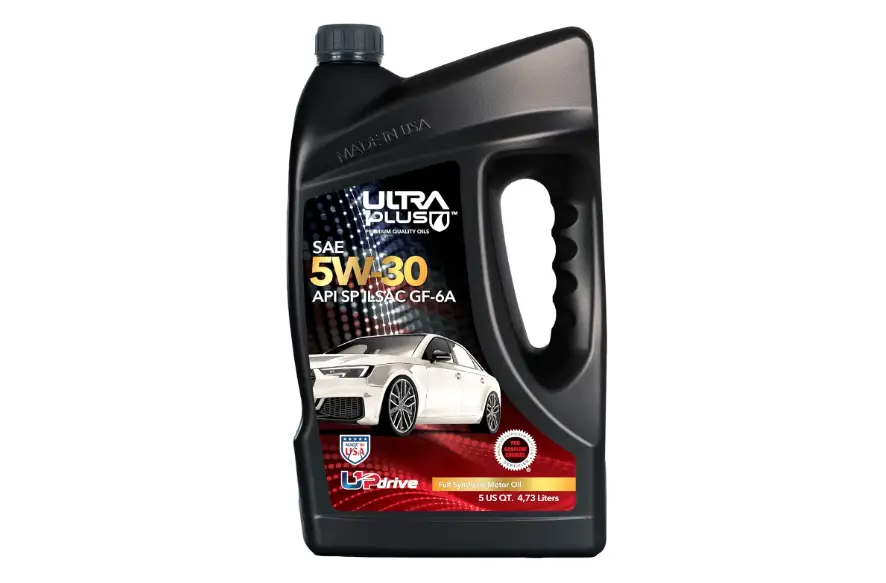Yes, engine oil has a shelf life. Unopened oil can typically last up to 5 years when stored in a cool, dry place, while synthetic oil may last even longer. Once opened, oil should be used within a year as exposure to air and contaminants can degrade its effectiveness.
Engine oil is one of the most critical fluids in any vehicle, responsible for lubricating moving parts, reducing friction, and preventing engine wear. However, many car owners wonder whether engine oil has a shelf life and what happens if they use old or expired oil. Understanding the shelf life of engine oil is essential to maintaining your vehicle’s performance and prolonging its engine life.
In this blog post, we’ll explore whether engine oil expires, what factors affect its longevity, how to store it properly, and what happens if you use old oil.

Contents
Does Engine Oil Have a Shelf Life?
Yes, engine oil does have a shelf life. While engine oil does not come with an exact expiration date like food or medicine, it can deteriorate over time. The shelf life of engine oil depends on several factors, including the type of oil, storage conditions, and whether the bottle has been opened.
In general, most manufacturers suggest that unopened, properly stored engine oil can last for up to five years. However, once opened, the oil’s shelf life decreases significantly due to exposure to air, moisture, and contaminants. Using old or degraded oil can affect your engine’s performance and may lead to long-term damage.
Factors Affecting Engine Oil Shelf Life
Engine oil has a limited shelf life, and several factors can impact how long it remains effective for use in an engine. Understanding these factors is important to ensure the oil provides optimal protection and performance when needed. Here are the key factors affecting engine oil shelf life:
Type of Oil
The type of engine oil you use plays a crucial role in determining its shelf life. Different types of engine oils are formulated with varying base oils and additives, which affect their stability over time. Here’s a breakdown of how each type of engine oil influences its shelf life:
- Conventional Oil: Derived from crude oil, conventional motor oil typically lasts 3-5 years when stored correctly. Its chemical properties are more prone to degradation compared to synthetic oil.
- Synthetic Oil: Made from refined and artificially processed compounds, synthetic oil has a longer shelf life than conventional oil, often lasting up to 7-8 years if stored in ideal conditions. Synthetic oils are more resistant to oxidation and chemical breakdown.
- Synthetic Blend: A mix of conventional and synthetic oil, synthetic blends have a lifespan closer to that of synthetic oil, generally lasting 5-7 years.
- High Mileage Oil: Formulated for older engines with higher mileage, this type of oil often contains additional additives that could deteriorate faster than standard oils, making it more susceptible to shelf life limitations.
Storage Conditions
Proper storage conditions play a significant role in how long engine oil can remain usable. Storing engine oil in the right environment ensures its additives and protective properties remain stable for as long as possible.
- Temperature: Engine oil should be stored in a place with consistent, moderate temperatures. Extreme heat can cause oxidation, while freezing temperatures can lead to the separation of additives.
- Humidity: Moisture is an enemy of engine oil. High humidity levels can introduce water vapor into the oil, leading to chemical breakdown and reducing its effectiveness.
- Light Exposure: Ultraviolet (UV) light from the sun can degrade the chemical composition of engine oil, particularly the additives. It’s best to store oil in a dark place to prevent light exposure.
Opened vs. Unopened Oil
Once the seal on the oil container is broken, the oil is exposed to oxygen, which accelerates the degradation process. The additives in the oil, which are essential for reducing wear and corrosion, may break down faster when exposed to air. Opened oil containers should be used within one year for optimal performance, while unopened containers can last several years.
Additives Deterioration
Engine oil contains various additives such as detergents, dispersants, anti-wear agents, and antioxidants. These additives enhance the oil’s ability to clean, lubricate, and protect the engine. Over time, these additives can degrade, reducing the oil’s effectiveness. This is particularly true if the oil has been exposed to extreme conditions or contaminants.

Signs That Engine Oil Has Gone Bad
Although engine oil doesn’t come with a traditional expiration date, there are some clear indicators that it may have gone bad or lost its effectiveness:
- Change in Color or Consistency: Fresh engine oil is usually a golden or amber color. If the oil has turned darker or cloudy while in storage, this could indicate contamination or oxidation. Additionally, if the oil feels thick, sticky, or has separated into layers, it may no longer be suitable for use.
- Unpleasant or Rancid Smell: Engine oil should have a mild, neutral smell. If it has a foul or sour odor, this could signal that the oil has been contaminated or that its additives have broken down. A rancid smell is often a clear indicator that the oil has exceeded its shelf life.
- Presence of Particles or Sediment: If you notice any particles, dirt, or sediment settled at the bottom of the oil container, this suggests contamination or that the additives have precipitated out of the oil. Using this oil could clog your engine’s filters and reduce performance.
- Separation of Components: If the oil has separated into different layers, with a clear fluid on top and a thicker substance below, it has likely degraded beyond usability. This separation means the oil’s base stock and additives are no longer properly mixed, compromising its protective qualities.
How to Properly Store Engine Oil
Proper storage is key to maximizing the shelf life of engine oil. Here are some essential tips to ensure your oil stays in good condition for as long as possible:
- Keep Oil in a Cool, Dry Place: Store engine oil in a location where temperatures are stable and moderate. Avoid storing oil in areas that are exposed to extreme temperatures, such as garages that may get too hot in the summer or too cold in the winter.
- Avoid Direct Sunlight: UV rays can degrade the oil’s additives and cause oxidation. Always store engine oil in a dark place, such as a closed cabinet, to prevent exposure to sunlight.
- Seal Tightly After Opening: If you’ve opened a container of engine oil, ensure the cap is tightly sealed after each use to minimize exposure to air, moisture, and contaminants. Store the container upright to avoid spills or leaks.
- Use Clean Storage Areas: The storage area should be clean and free from dust, dirt, and chemicals. Contaminants can easily make their way into an open container of oil, rendering it unusable.
What Happens If You Use Old Engine Oil?
Using old or expired engine oil can have serious consequences for your engine. While it may still provide some lubrication, its reduced effectiveness could lead to a variety of problems:
- Reduced Lubrication: Old oil may not lubricate engine components as effectively, leading to increased friction and wear on critical parts like pistons, bearings, and camshafts.
- Increased Engine Wear: As the additives in the oil break down, the oil loses its ability to protect the engine from corrosion, wear, and sludge buildup. This can lead to premature engine wear and, eventually, failure.
- Clogging and Sludge Formation: Degraded oil can form sludge or deposits that can clog oil passages, filters, and other engine components, reducing performance and potentially causing long-term damage.
- Overheating: Engine oil also helps dissipate heat from the engine. If the oil has lost its effectiveness, it may not regulate temperature properly, leading to engine overheating and potential damage.
Frequently Asked Questions
Here are some FAQs about engine oil –
1. How long does engine oil last once opened?
Once opened, engine oil should be used within one year. Exposure to air, moisture, and contaminants accelerates the breakdown of the oil’s additives, reducing its effectiveness over time.
2. Can I use engine oil that’s been stored for a long time?
If the engine oil has been stored in ideal conditions (cool, dry, dark place), unopened oil can last up to five years. However, it’s important to check for any signs of degradation, such as changes in color, consistency, or odor, before using it.
3. Does synthetic oil last longer than conventional oil?
Yes, synthetic oil typically has a longer shelf life than conventional oil. When stored properly, synthetic oil can last up to 7-8 years, compared to 3-5 years for conventional oil.
4. Can I mix old and new engine oil?
It’s not recommended to mix old and new engine oil, especially if the old oil has been opened or stored for a long time. Mixing oils with different additive levels could reduce the overall effectiveness and protection for your engine.
5. What should I do with expired or unused engine oil?
Expired or unused engine oil should be disposed of at a proper recycling facility. Many auto shops and service centers accept used oil for recycling. Never dispose of engine oil in household trash or down the drain, as it can be harmful to the environment.
Conclusion
While engine oil does have a shelf life, it can remain usable for several years if stored properly in the right conditions. Understanding the factors that influence the longevity of engine oil, such as type, storage environment, and whether the container has been opened, is crucial for maintaining engine health. If you notice any signs of oil degradation, such as changes in color, consistency, or smell, it’s best to replace it with fresh oil. By following these guidelines, you can ensure that your engine is always running with optimal protection and performance.